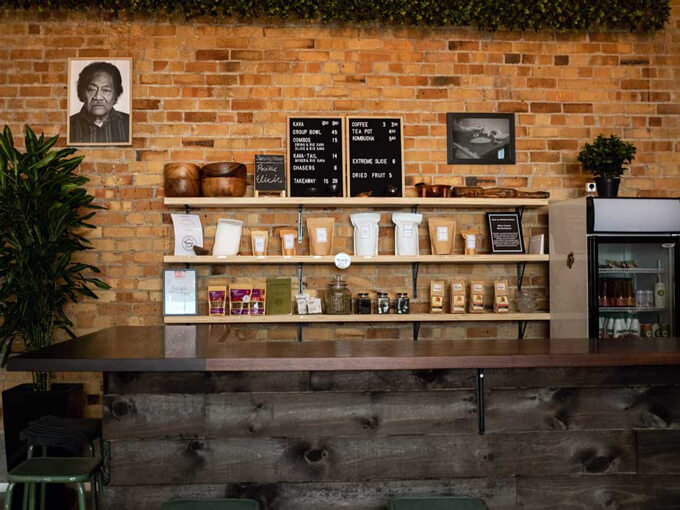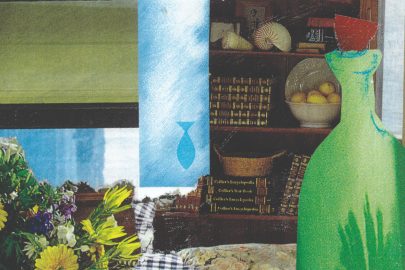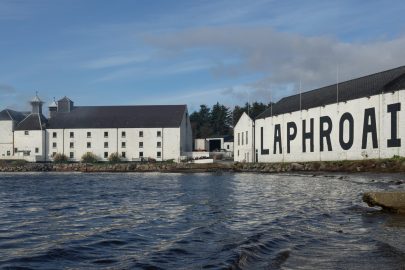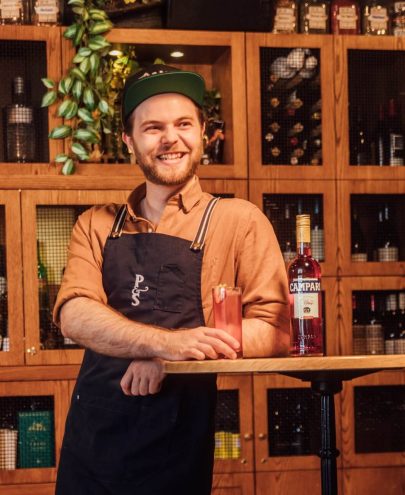Aug 13, 2019 Drinks
A Kava bar has opened in Victoria Park Market, and Auckland’s Pacific community is taking notice.
“Is it alcoholic?” ask my workmates when I return from Four Shells Kava. No, I tell them. “So what does it do?”
I feel like I have just done 3 hours of yoga in a warm bath. Physical movement is more effort. I feel lighter and heavier at the same time and as a result of my body relaxing, my mind has zenned out too. Like when you fake smile until you’re genuinely happy.
Kava is like the anti-coffee, lauded for its chill-out, anti-anxiety effects. I’d give it a go instead of alcohol on a night out (they don’t recommend you mix the two) or instead of coffee on a stressful afternoon.
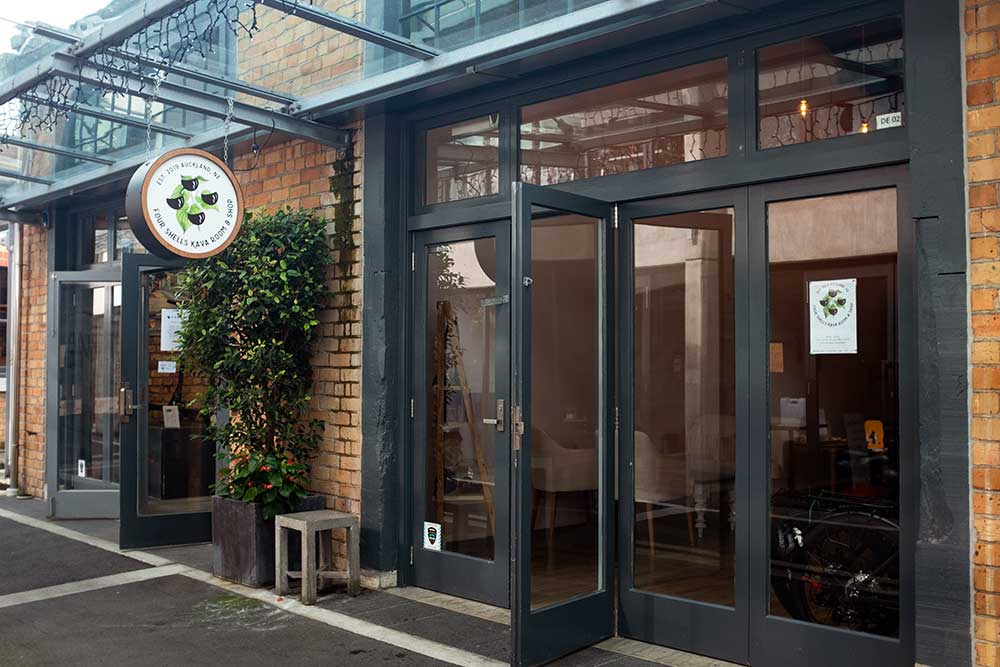
“Wouldn’t you just get nothing done because you’re too chill?!” asked my editor – au contraire! I happily tapped away at my keyboard and every problem that arose was dealt-to with a chuckle rather than a frown on a day that I would have otherwise been tearing my hair out.
There’s no age limit on who can drink kava and the World Health Organisation deems the drink to be an “acceptably low level of health risk”.
The taste is bitter, earthy and plantlike, almost like you’re having a much on some slightly grubby leaves. If I had to liken it to a culinary taste, there is a distant hint of kawakawa flavour. No one drinks it for the taste anyway. You down it, your tongue goes numb, and you get all sort of… chill.
The ratio of kava to water is a trade secret here at Four Shells in Victoria Park Market, but you can watch it being made and see how easy the process it. They add a bag of kava powder to water (like a giant bowl of tea) then they knead the bag and the water turns murky and muddy looking, like a forest river after rain.
The powder is made from the roots of the kava plant (scientific name Piper methysticum). It looks almost exactly like its Kiwi cousin, kawakawa; up to 6 foot tall with dark green, heart shaped leaves and dark stems. There are different cultivations or strains that have slightly different effects that differ from place to place. There’s one that keeps you awake and alert and there are some that make you sleepy. The one they’re serving me today at Four Shells is renowned for the way it helps conversation flow.
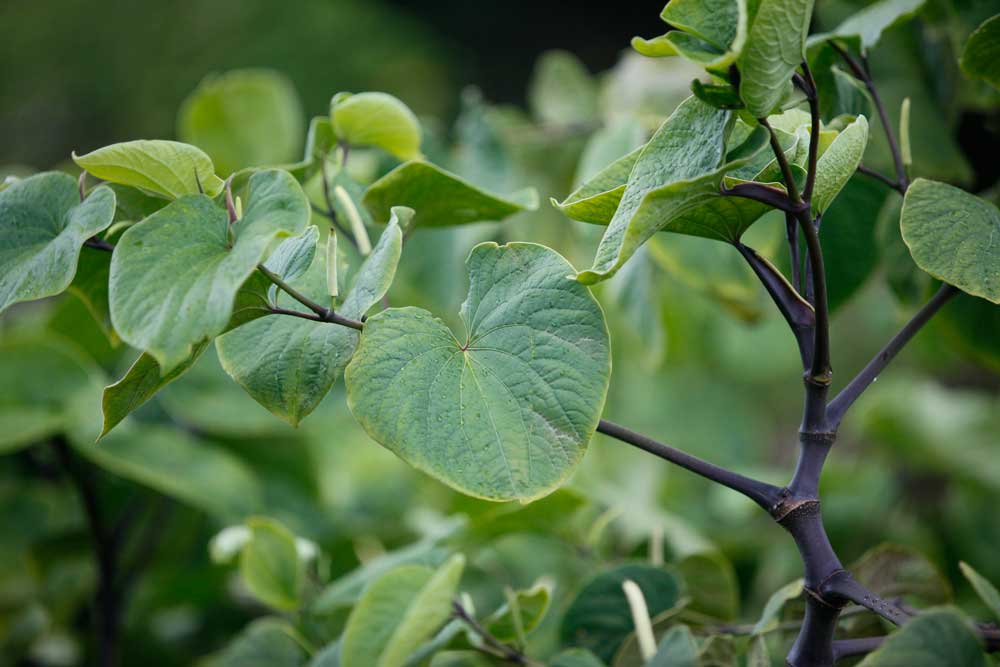
In fact, that’s one reason the founders were drawn to kava. Four Shells is named because there are four founders: Monica and Anton Kuznetsov, and Todd and Anau Henry – plus they reckon you need about four shells to get a buzz on.
Anton tells me that he and the other staff at Float Culture (which the Four Shells crew also runs) all have a shell or two before a meeting. To break down barriers and get on the same wavelength and once you try it, you can see why.
In the Pacific Islands, where kava has been cultivated for centuries, it is consumed in a communal setting. In Tonga, it’s served by a woman (typically a young, unmarried one) and consumed only by men. In Fiji, participants sit in a circle for a kava ceremony that often welcomes guests to the village. In Samoa, kava is a centerpoint in important ceremonies, with the person of the highest importance served first; usually any visiting chief followed by the host.
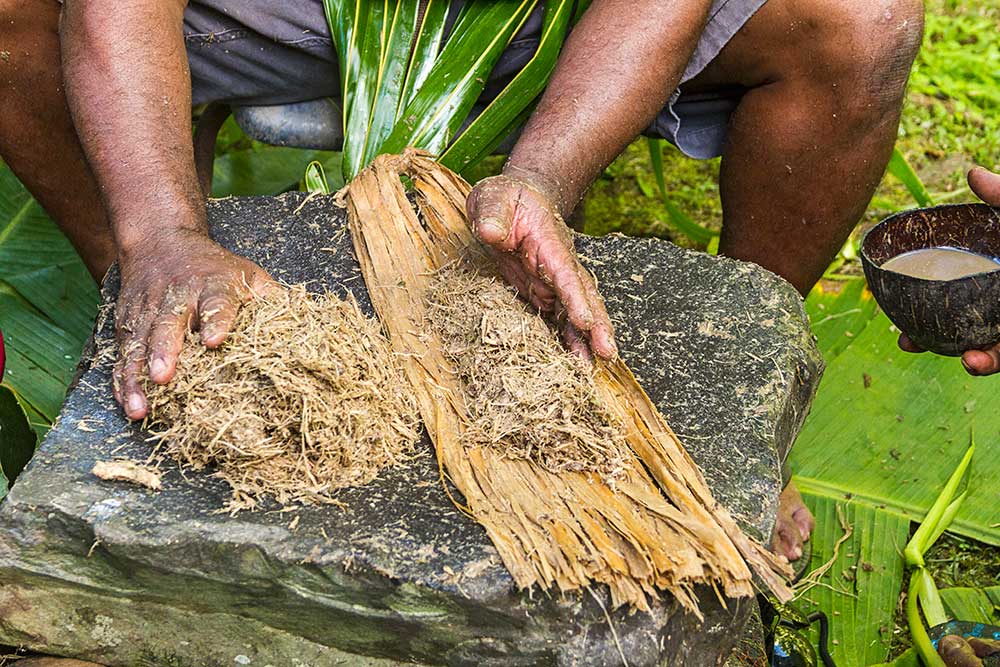
Kava fits into each culture in slightly different ways, and even within each country there are variations. The plant doesn’t grow in New Zealand, though it is related to kawkawa (an important ingredient in traditional Maori medicines) – which might be why Aotearoa has no traditional kava consumption method.
Four Shells isn’t the first kava place in Auckland – there’s Kava House in Papatoetoe. It’s a different scene; everyone there knows each other and already knows kava from their Pacific roots. That, and the fact it is a bit out of the way for anyone not out south means Kava House offer something different to Four Shells, where the aim is to introduce the wider Auckland community to this Pacific beverage.
It can be tricky to find kava for sale in Auckland. Cosmic used to sell it but stopped. A dairy on Pitt street proclaims “we sell kava” on a hand-written sign. Then there’s The Kava Society, a University of Auckland based group who are dedicated to kava research, advocacy and consumption. They’ve been helping Four Shells set up shop, and some of the kavas they import are being sold there.
The commercialisation of such a culturally significant beverage could be jarring in some contexts, says Amie Taua, a Masters student with a focus on biculturalism in New Zealand and Pacific cultures.
“Removing the contextual relevance of Kava and resituating it in an urban setting for profit creates air of tokenism. This could open a conversation within Pasifika communities regarding both who has the right to monetize tradition or, more importantly, whether it should be commodified at all.”
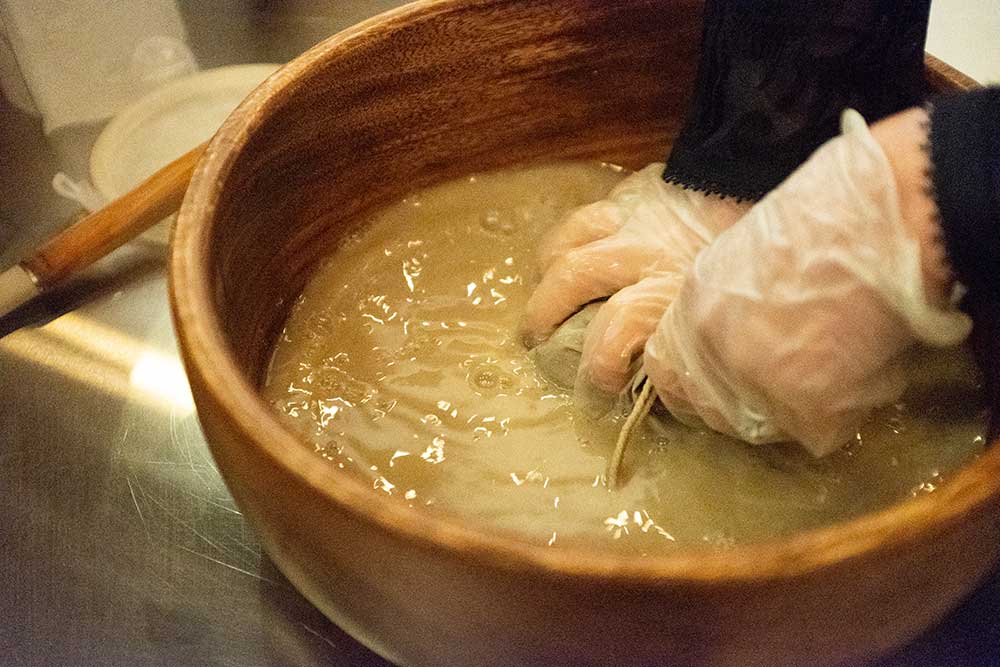
Taua hasn’t had much experience with kava herself – in the part of Samoa where her father is from, it’s reserved men. Nevertheless, and despite her skepticism toward the commodification of tradition, she is enthusiastic that a prominent kava bar could make Pacific culture accessible to a wider market to be shared, enjoyed and celebrated.
In New Zealand, it’s a question that is only just starting to be raised – and the answers aren’t clear yet. But overseas, it’s already happened – there is already a Fijian kava company trading on the stock market and Auckland’s The Kava Society are quick to point out that informal kava bars are not a new thing; the idea comes from the islands.
“Vanuatu, the original birthplace of kava, has had its vibrant kava bar scene for decades,” Taua says. “In Port Vila (Vanuatu’s capital) there are literally hundreds of laid back kava bars.”
The one constant across all the islands is that kava is meant to be consumed peacefully in a relaxing environment.
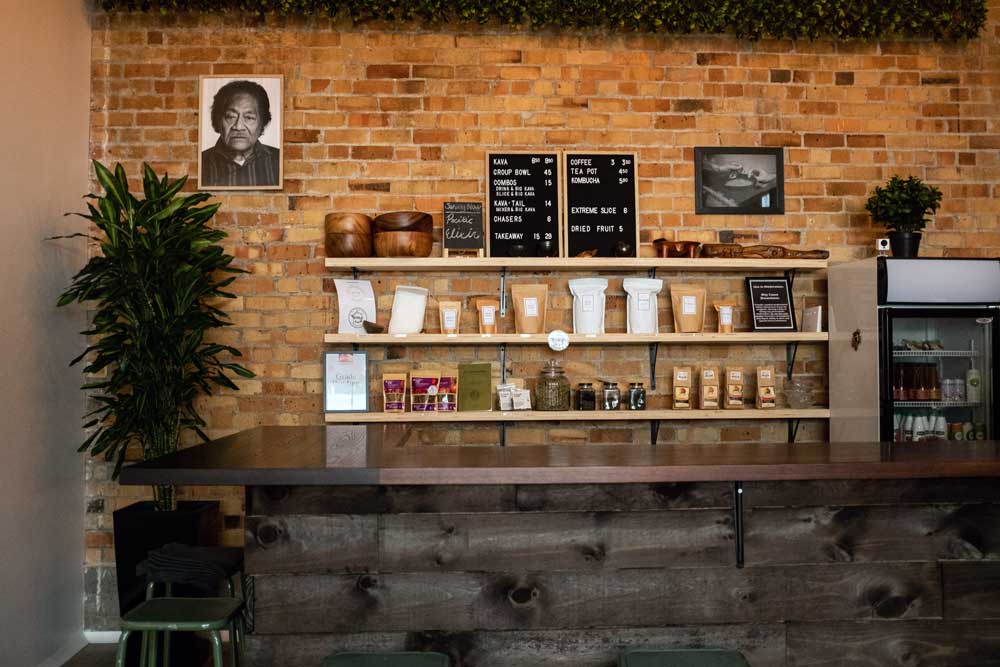
When you think of it that way, kava’s introduction to Auckland’s cafe culture looks like modern Aotearoa’s own iteration of the Pacific tradition. We are a Pacific nation with a large population of islanders, so visibility for Pasifika culture has to be a good thing right?
Since opening Four Shells, Anau has been getting emails from Tongans she’s never even met congratulating her and thanking her for showing kava to the public. “I think they’re proud,” she says. “Tongans are always proud if there’s anything tied to Tonga”
As to whether or not the novelty of a kava bar targeted at those who haven’t tried kava before will stick, the team at Four Shells are (of course) hopeful.
Taua’s ideas paint a more imaginative picture. “Kava cafes could become the latest yuppie craze, where cliques swap or a glass of rosé for shared kava bowls and office Christmas parties congregate for team building exercises.”
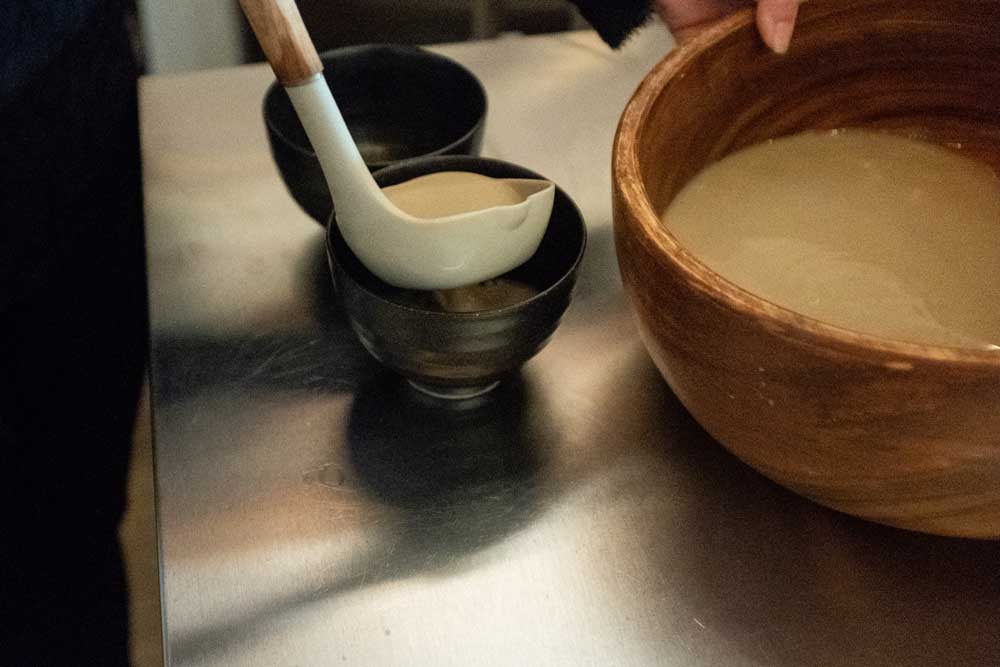
As a Kiwi with Pasifika heritage and an eye to what happens when two cultures collide, Taua is at a perfect vantage point to guess how a kava bar might fare in the long term. “I am on the fence as to its sticking power, but if kava cafes are to be a staple of New Zealand, a favourite pastime, Auckland is the perfect platform.”
Four Shells sell straight kava beverages, tea, coffee and something called a kava tail which is half a glass of kava that you may pour a mixer into if you like. They aren’t allowed to mix it themselves because of government regulations. But you can, if you like, pour in a lemon, raspberry and elderberry mixer with a sharp taste that changes the taste of the kava, making it more palatable. They’re sippable, which the big shells are not. In all iterations though you gulp them down quick and enjoy the effects. Looks like Auckland’s coffee culture might have met its antithesis.

